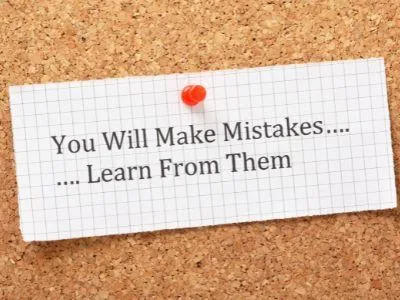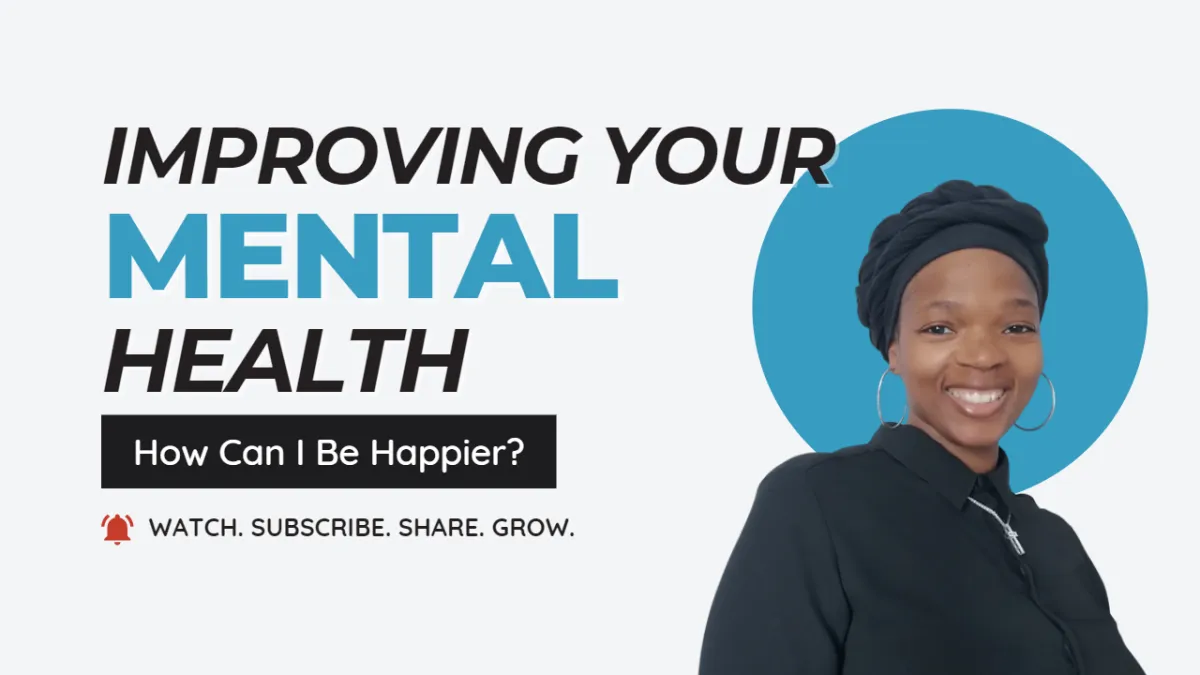MAKING BETTER DECISIONS
10 Tips for Better Decision Making
…so you can stop doubting yourself!
Author: Anthea Armar
Date Published: 16 June 2022
Topics: Decision Making, Critical Thinking, Leadership, Anxiety, Confidence, Fear
Estimated Read Time: 9 minutes 11 seconds
How often do you regret the decisions you’ve made? Daily? Weekly? Monthly? Considering you make potentially thousands of decisions on a daily basis, that’s a lot of regret to harbour.
Every decision you make may cause a short, middle, or long-term impact on your life. Some decisions may be critical and may have long-term impact e.g. getting married, starting a business, emigrating to another country.
Whereas some decisions are trivial, and their impact may not be felt much, for instance, choosing coffee or hot chocolate, strawberries or grapes, marketing meeting or finance meeting.
Yet so many of us struggle to make decisions that we can feel confident about.

Image Source: Brett Jordan (Unsplash)
From a psychological perspective, your decisions are formed from opinions and actions through mental processes which are influenced by biases, reasons, emotions and memories. Essentially, the experiences you have had in life will become the lens at which you make decisions, whether personally or professionally.
You can only make excellent decisions when you think critically, while looking for all potential sources of information with an open mind. Facts, rather than just intuition, can positively influence your business decisions.
Why do people make poor decisions?
Have you ever made a really poor decision, like one that you know deep down is a bad idea but still go through with it anyway?
It might not be an accident. Psychologists are coming to understand that there are certain psychological reasons behind poor decision-making, and they’re not always what we’d expect.
There are a number of psychological reasons humans make poor decisions, from alcohol consumption to not wearing a seatbelt or engaging in a fight:
Being too optimistic
There is a natural tendency to be overly optimistic about deciding, and you’re no exception. This may be because of our inherent belief that bad things happen to others, but not us. Tali Sharot, Professor of Cognitive Neuroscience and author of the Optimism Bias, says that this is the “optimism bias, or our tendency to overestimate the likelihood of experiencing good events while underestimating the likelihood of experiencing terrible events.”
Analysis paralysis
This is an inability to decide because of overthinking a problem. The reason you make poor decisions sometimes may be because you take too much time to analyse the problem. Instead of moving on with the decision, you rather get caught up in the analysis loop, especially when there are several alternatives to consider or if the available parameters are too vague. This will cause you to miss most relevant opportunities.
Emotions
Your mood or emotions sometimes strongly influence the type of decisions you make. Resist the temptation of making key decisions when you’re angry or emotionally keyed up. You’re more likely to make a wrong decision when you’re extremely happy, sad, anxious, or intimidated.
Decision fatigue
The reason you make a lot of poor decisions may be because of repeated exertion of your brain. Ensure that you make most of the important decisions of your life when you have higher energy levels.
"We all make choices, but in the end, our choices make us." Ken Levine
For every decision you make, you will definitely live to see the consequence, beneficial or detrimental. This isn’t to say that a detrimental consequence is the end of the world, as there are always lessons to be taken away from every situation, but there are opportunities to make smarter decisions that lead to more positive outcomes.
How can you make better decisions?
We all want to make wise decisions, especially for our business, but it can cause a lot of anxiety. You may stress out wondering if this is the best thing or if something else might work better. You may doubt yourself and lose confidence, which then leads to a half-hearted effort to move forward with your decision - and your business and confidence suffers in the process.
Whether you are an entrepreneur deciding how to spend your time this week or a manager deciding which candidate to offer a new role to or a Business Leader deciding which goals to focus on in the next quarter, there are ways to make smart business decisions that you can feel good about:
1. Learn more

Image Source: Aaron Burden (Unsplash)
Without knowing every aspect of your business, you could be unaware of important information that could make a difference when it comes to making a decision.
Speaking to your customers, staff, if any, and suppliers will give you great insight into how your business operates, is perceived and any areas where improvements can be made.
Avoid relying solely on business reports, as ultimately, it’s the people who will influence future reports, so learning from them is vital.
2. Focus on your objectives
You do not have to jump straight into the conversation. Give yourself some time by scheduling the conversation for another time, so you have enough time to prepare.
One aspect of the conversation you can control are the issues you choose to address.
Get clarity on these by identifying what you feel the issues are and consider all aspects of your concerns.
Try to find the heart of the issues, so you don't get lost during the conversation. A good analysis can save you time and effort later.

3. Understand the challenges

Image Source: krakenimages (Unsplash)
It’s tough to resolve challenges when you don’t know exactly what they are and the impact they are having on your business.
For example, if profits are down, what is the reason behind this? Is it because your customer service quality has decreased and reviews are down? Or is it because you stopped running ads to save money and are not getting enough leads?
Clarifying the real issue will help you make smarter, more informed, decisions.
4. Control your emotions
Avoid allowing your emotions to make your decision. The more emotionally charged you are, the more difficult it is to stay focused on the challenges you are facing.
It’s important to remain calm and level-headed.
If you feel very emotional, walk away temporarily and make the decision when you can respond wisely, instead of just reacting based on how you feel at the moment.

5. Set a deadline

Image Source: krakenimages (Unsplash)
Specify when the decision needs to be made. In most cases, any decision is better than none at all.
The amount of time lost through indecision prevents you from completing other work and attending to other priorities. Making a decision will allow you to determine whether it worked out in your favour or not, rather than pondering how it will turn out.
Gather pertinent information and then make your best decision based on those facts by your deadline.
6. Consider your values
Your values and principles are important, so keep them in mind when making a decision.
Anything that can potentially conflict with your values, or the values of your business, are likely to have a detrimental effect on you and your brand, even if you increase profits.
For each option you are considering, ask yourself if it supports your values.
Will you be able to live with the consequences of choosing that option?
There is always another way, so find one that aligns so that you can have a clear conscience.

7. Take advice from others

Image Source: krakenimages (Unsplash)
Even though you may be the boss, it’s important to consider other people's viewpoints, especially if the decision will affect them.
Your colleagues, network, accountability group etc. may offer a different option or insight that you may not have thought of.
Consider others who have been in similar situations that may be able to explain their challenges, decisions and consequences, which you can learn from and apply what might work for you.
8. Relax
Decision making can be stressful and increase your anxiety.
Trying to be clearheaded when stressed may cause you to make decisions from a place of frustration.
Sometimes a short break away from everything is all you need to feel better and come at the issue with a fresh perspective.

9. Have multiple options

Image Source: krakenimages (Unsplash)
You don’t have to only have a plan A when it comes to business decisions.
It is always good to have a plan B, or even a plan C. This doesn’t indicate a lack of confidence in the decision you have made, but allows you to consider various solutions to the same problem.
If one plan doesn’t work out as well as you had hoped, having multiple plans will allow you to go right into a new one without further procrastination around decision making.
10. Learn from your mistakes
We all make mistakes. It’s just part of business. Realising that mistakes are not failure will allow you to revisit the challenge, the decision and how it was executed in order to see why it didn’t work.
It may have been the right decision, but due to unexpected circumstances outside your control, it didn’t have the impact you wanted.
It may have been the wrong decision, but it gave you insight into your decision-making process that will help you make smarter decisions moving forward.
If you are open to learning from these mistakes, you’ll be able to adapt wisely for the future.

"Just because it didn’t work out how you expected it to, doesn’t mean it didn’t work out." Anthea Armar
Your Decision-Making Checklist
Decision making is a skill that can be improved over time. It won’t happen the more you put off making decisions or make decisions from an anxious or emotionally charged frame of mind. Put these tips into practice in your business and enjoy your newfound confidence in your smart business decisions:
- Learn more - the more you can learn about your company and its people, processes and technology, the better equipped you will be to make more well-rounded decisions. Consider sending out a survey or set up calls with your most values clients to see what input they can provide.
- Focus on your objectives - get clarity on your short and long-term business objectives. When making decisions, ensure that short-term decisions do not impact long-term progress. Keep your long-term goals in mind as well as what can help you in the immediate future.
- Understand the challenges - take time to understand what the issues really are, so they can be addressed with the decisions you make. Hold meetings with others or seek external help from a professional to help get to the root of the problem.
- Control your emotions - separate your emotions from the situation you are facing. Emotions can be temporary and making a decision in the moment could cause long-term damage. Take a break and come back to it when feeling more level-headed.
- Set a deadline - avoid delaying making a decision by setting a deadline. Use that time you have to gather all pertinent information and make the best decision based on what you have available to you at the time.
- Consider your values - ensure that whatever you are considering aligns to your values and your business values. Make a list of your personal values and another list of your business values. Anything that causes conflict with your values is likely to express itself to your customers and send mixed messages about your brand.
- Take advice from others - don’t go it alone. Seek insights from others who may have other perspectives you have not yet considered. Your local business support group may also be of help in making your decision. Other members of the group may have faced the same situation before and could offer some sage advice.
- Relax - step away from any potential anxiety and overwhelm for 10-20 minutes to clear your mind and relax yourself. Coming back with fresh perspectives may help you make a decision much quicker.
- Have multiple options - consider many possibilities and then choose the best one to move forward with. Outline each decision separately, including who it impacts, the steps involved and timelines for completion and review. If, for whatever reason it doesn’t work out, you can revisit the other options, rather than starting from scratch.
- Learn from your mistakes - Look back at whatever decision you wish to analyse. What was the outcome? How would you change things if you had to make the same decision again?
Conclusion
Decision making can be challenging. No one wants to be wrong. Although it is impossible to control the outcome of any decision, it is possible to influence a positive one based on a number of factors that are in your control.
By adopting the tips from this blog, you will begin to improve your decision-making skills, be more confident, be less anxious and be happier with the consequences.
Regardless of the business decisions you need to make, gaining clarity on the exact challenges you are facing will give you the best chance at making a decision that not only resolves the problem, but also gives you a deeper understanding of your business and the people who help to make it work.
Want to dive deeper?
Amarkai Group offers a variety of wellbeing workshops and organisational coaching that focus on improving critical thinking skills, which are essential for effective decision making.

We focus on helping you to improve the critical thinking skills and methods used to solve day-to-day and strategic problems, whilst boosting confidence amongst your staff.
Decide to become a high performing organisation. Contact us today to learn more about coaching or workshops to improve communication in your organisation.
“Anthea presents a lot of sound information for creating the business you want. She emphasizes that our own transformation is what is needed to move forward and that we create what we want-master of our business and our life. We create what we choose. She also challenges participants to get into action-don't keep waiting for amazing to come to you-create it!”
Anonymous
Liked this blog? Be sure to share.
What methods do you use to make decisions? Let us know in the comments.
© AmarkaiGroup.com ・All Rights Reserved・Terms & Conditions・Privacy・Cookie Policy・Site by Christa Potter














